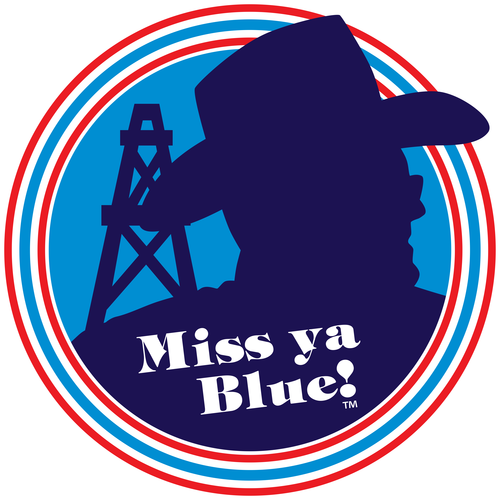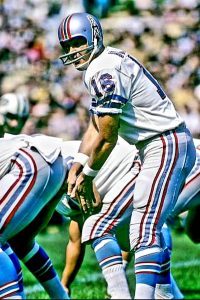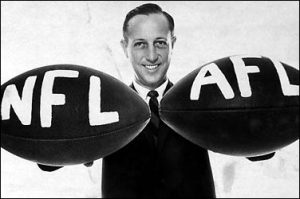The 1961 Season, Part 5
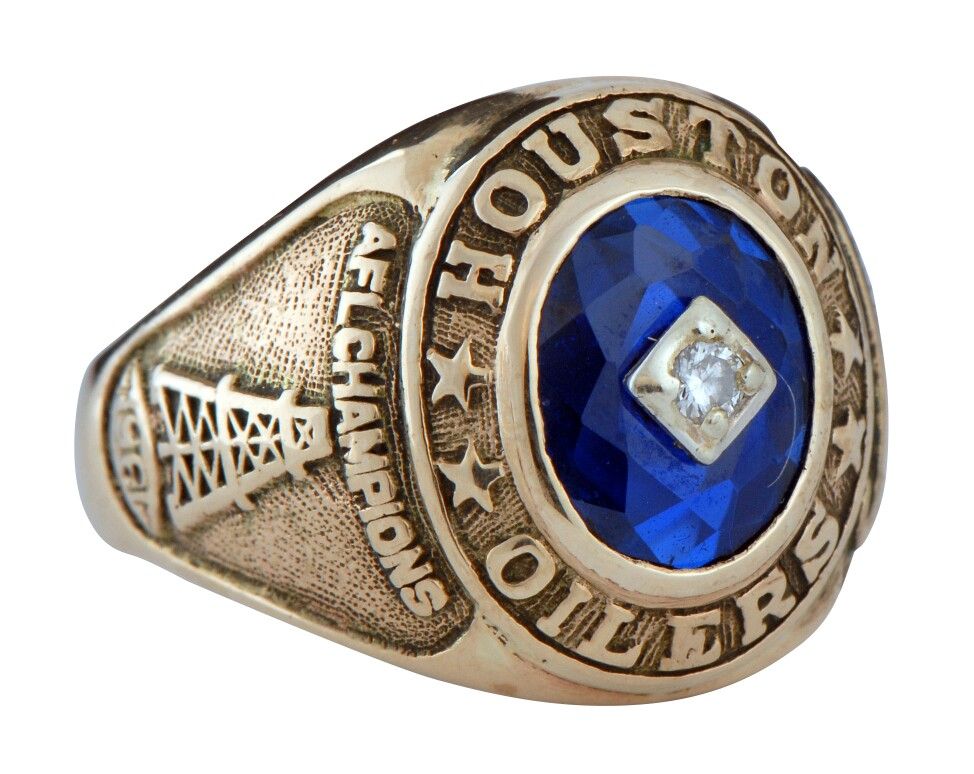
“Number 10 for the Title Win”
By ED WETTERMAN
PREVIOUSLY – The 1961 Season, Part 1
PREVIOUSLY – The 1961 Season, Part 2
PREVIOUSLY – The 1961 Season, Part 3
PREVIOUSLY – The 1961 Season, Part 4
Under Head Coach Sid Gillman, the San Diego Chargers entered the 1961 American Football League (AFL) championship game with a 12-2 record, having split the two regular-season meetings with Houston.

This gave the Chargers the right to host the title tilt on Christmas Eve in San Diego’s Balboa Stadium, since the Chargers had a better record than the 11-3-1 Oilers by just one-quarter of a game.
This game, a rematch of the inaugural AFL championship in 1960 and the sixth matchup between the two squads during the calendar year, would unfold quite differently than the previous meetings between the teams, both of which had fairly prolific amounts of scoring.
On September 24, San Diego had handed Houston its first loss at 34-24. On December 3, the Oilers had exacted revenge at 33-13.
For the championship showdown, Gillman promised “a few surprises” in his offense, which had sputtered badly in Houston.
Defensively, he also promised to pay more attention to Houston receiver Charlie Hennigan, who caught three scoring passes in their prior meeting.
“We’ll have to double-team him, but it isn’t that simple,” Gillman said.
“They also have [wide receiver Bill] Groman, who was the No. 6 pass catcher in the league and didn’t even play against us. And they have Cannon, who caught the touchdown pass that broke our backs last year.
“We’ve decided there is only one thing to do. We will have to rush our linebackers,” Gillman said.
“When Blanda has time to throw, he connects. … What we want him to do is get rid of the ball sooner than he wants to and with some loft on it,” Gillman added.
Chargers’ rookie defensive tackle Ernie Ladd, who later played for the Oilers in 1966-67 and became a hall-of-fame professional wrestler, admitted he had been carrying a picture in his pocket since December 3, but not one of any relative or friend.
Rather, it was a picture of Blanda, and Ladd explained by saying he wanted to be sure he recognized Blanda when they met in the championship game.
Ladd and his fellow Charger defenders had little success rushing Blanda in the 33-13 loss in Houston.
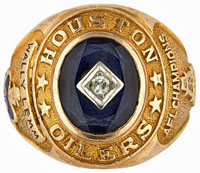
When the favored Oilers arrived the day before the game, Houston Head Coach Wally Lemm pronounced his men ready to go: “I look for a lot more from San Diego than it has been showing the last three weeks. In viewing the films, I’ve noticed San Diego hasn’t done much in the way of innovations or variety. I expect they will tomorrow.
“We’ll just have to adjust as the games goes along,” he said.
Their third tangle proved to be a defensive struggle filled with hard hits and injuries, with the Oilers looking to extend their nine-game winning streak and the Chargers sputtering after losing two of their last three games.
Oilers quarterback George Blanda called it “ the toughest game I’ve ever been in.”
Thirteen players left the game with injuries, and 12 teeth were lost, two of which belonged to Oiler receiver Willard Dewveall.
The impairment that would hurt the Oilers most in the long run was suffered by Groman, who would never fully recover from the knee injury he suffered that day.
The game was wrecked with 15 penalties as well, 10 of which went against San Diego, and 11 of which were called in the second half.
A disappointing crowd of 29,556 made up with enthusiasm and noise for what it lacked in numbers on a cool (53°), damp (77% humidity) day with a slight wind (6 mph).
Houston owned the ball for most of the first half but had little to show for it.
On their first possession, the Oilers ran 11 plays from their 20 to the San Diego 46, but the drive stalled when Cannon was dropped for a three-yard loss, and Blanda threw a couple of incompletions.
The most explosive action in the opening period came when Al Jamison, the Oilers’ all-AFL offensive tackle who was nicknamed “The Assassin” for his chippy play, smashed into Chargers All-Pro cornerback Dick Harris after a whistle, but no flag was thrown.
San Diego assistant coach Chuck Noll (who later became a four-time Super Bowl head coach for the Pittsburgh Steelers and a Pro Football Hall of Famer) raced onto the field shouting in protest but to no avail.
Afterward the game, Jamison denied any intent to hurt Harris, saying that the hit was just part of the game.
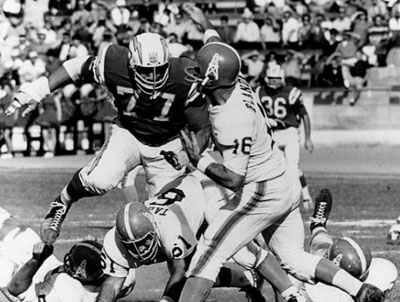
On the next play, Blanda picked on Harris’ replacement, Bud Whitehead, but the move backfired, as Whitehead picked off the pass and raced 41 yards up the sideline to the San Diego 48.
On the first snap, Chargers quarterback Jack Kemp found end Dave Kocourek on a reverse screen pattern, and the tall wingman sped between a couple of defenders to the Houston 14.
However, on the next play, Houston’s Fred Glick pirated Kemp’s jump-pass intended for Luther Hayes in the end zone.
Stunningly, the game’s first score didn’t come until 6:54 in the second period on a 46-yard Blanda field goal after the Charger defense bailed out a shanked punt by Paul Maguire.
Shortly after halftime, the Oilers sealed their second title in as many years of the AFL’s existence when safety-outlet Billy Cannon took a hurried 35-yard pass from Blanda and raced into the end zone for a 10-0 lead at 11:39 in the third quarter.
In that scoring drive, Houston was aided by a 15-yard penalty against San Diego.
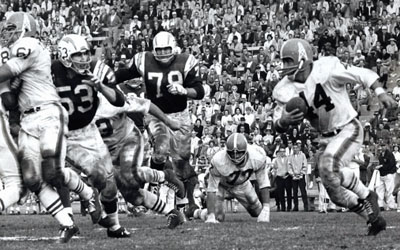
The Chargers managed a field goal just 39 seconds before the final horn to spoil the shutout, but the game soon ended in an Oiler victory, 10-3.
This game was very unusual for the AFL, which usually featured well oiled, prolific, wide-open offensive play.
Houston and San Diego combined for seven fumbles, 10 interceptions.
Blanda had five interceptions and one fumble, along with a puny 18-for-40, 160-yard, one-touchdown passing effort.
Running back Cannon racked up more receiving yards than the normally prolific Hennigan with five catches for 53 yards, while managing just 48 yards on 15 carries.
He was received the game’s Most Outstanding Player award for the second straight year.
Neither team reached 100 yards rushing on the day.
After the final whistle, Gillman engaged in a shouting match with back judge Johnny Morrow that resulted in conflicting narratives of what happened next.
One version recorded Morrow grabbing the coach by the lapels and shaking him.
San Diego defensive back Bob Zeman said he then intervened and grabbed Morrow.
“I took hold of the official because he was roughing up Coach Gillman,” Zeman explained after the game.
“The fellow had made enough mistakes during the game without bothering us after it was over.”
Another version related that Gillman, upset about the 10 penalties whistled against his team (seven of which came in the second half), knocked Morrow to the ground and stood over him, cussing and taunting him.
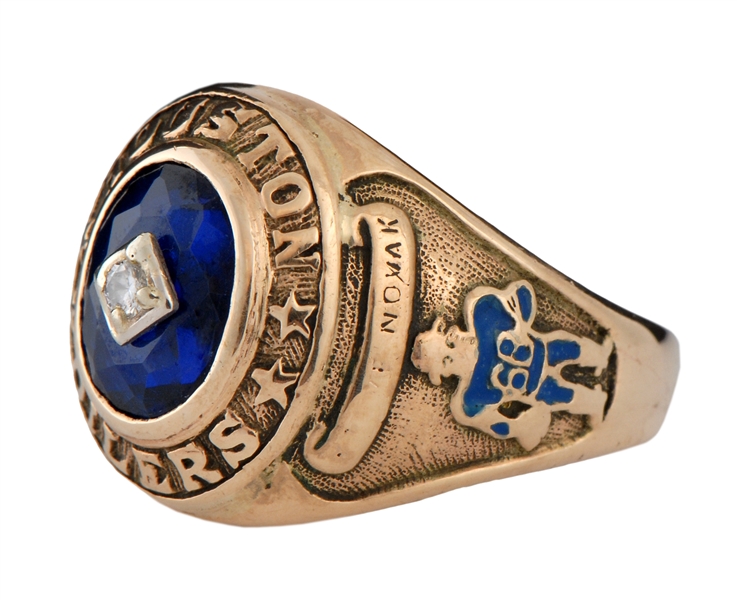
When the official tried to stand up, San Diego players surrounded him and knocked him back down twice more.
Finally, the police escorted Morrow from the field.
To commemorate the Houston victory, Oilers owner Bud Adams again promised championship rings, but unlike the previous season, he would deliver this time.
Despite its rugged beginning, the 1961 Oiler season evolved into a tremendous one, and one of the all-time best for the beloved Columbia Blue.
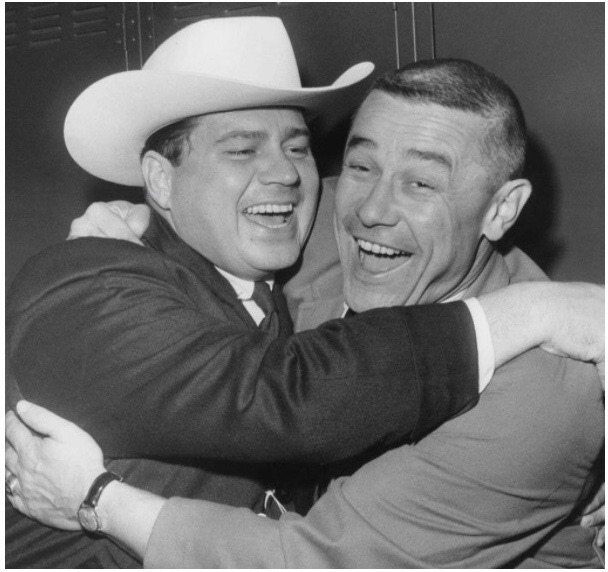
Miraculously, after inheriting a 1-3-1 team in tatters after Adams fired Lou Rymkus, Lemm won 10 straight games, including the title game.
The 1961 Houston squad averaged 449 yards per game, and Blanda ended the season with 3,330 passing yards, 36 touchdown tosses, and just 22 interceptions.
He also booted 17 field goals and 65 of 66 extra-point attempts for 116 kicking points (including the championship game).
Fittingly, Blanda was unanimously voted as the AFL’s Player of the Year.
Groman hauled in 17 receiving touchdowns, while Hennegan notched 12.
Groman also added a rushing touchdown, giving him 18 on the season, a record eclipsed only by Earl Campbell throughout Oilers history.
Thirteen Houston players made all-star teams.
Though season’s start and the title game may have seemed ugly to spectators, they gave the Oiler franchise its second championship in its two years of existence and the last they would ever have.
Ed Wetterman is a native Houstonian and lifelong Oiler fan/historian. He is a teacher, genealogist, game creator, and writer who lived and died on Sundays with the Oilers. Ed has created many games such as “East Texas University: Degrees of Horror” and written short stories such as “HellFighter,” published by Pinnacle Entertainment Group. Football has always been one of his greatest passions. He experienced the highs and the lows of being an Oiler fan, and like many others, he was crushed when the Oilers left Houston. Writing for Miss Ya Blue! gives him an outlet for his Columbia Blue love.
UP NEXT – The 1962 Season, Part 1
#houston #oilers #htown #houstontx #houstonoilers #nfl #astrodome #sports #star #history #football #luvyablue #missyablue #texas #houstonblogger #throwback
